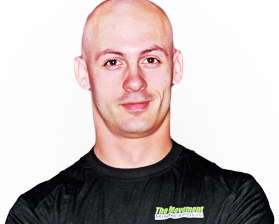Lawyers have a saying, that a lawyer who represents himself has a fool for a client.
Why? Setting aside matters of legal specialities, an attorney doesn’t become any less competent the moment they start representing themselves. They still went to law school, they still know the laws and procedures, and they still have their cognitive reasoning skills and abilities.
It’s the same paradox as coaches or experts coaching themselves.
This has always been a bit of a conundrum for me because one of my highest values is autonomy and one of the core premises of biofeedback is that (in a sense) you can be your own best coach through evaluating your own responses.
In either case the value that an outside lawyer or coach can provide isn’t in the skills or knowledge of laws or training techniques nor is it in the discrete pieces of information or objective feedback that can be used to build a case or a plan.
The value is in the fact that humans are incredibly capable and adept at manipulating their external environments. And not so good at anything introspective.
The value that a coach provides is the ability to take a holistic and dispassionate look at the big picture and make suggestions for you to test.
It can be really, really hard to get out of your own way and not make mistakes because of what is obscured from your own observation and intuition. I discussed some reasons for this earlier in the week.
Lawyers know that representing yourself is foolish probably not least because they understand the stakes. But I have to part ways with this analogy at this point, because while you should almost always just shut up and listen to your attorney, coaching doesn’t work that way.
The benefit of the external perspective and the holistic view that a coach provides is invaluable, but when it comes to your body the suggestions from a coach are simply starting points for you to confirm against what is actually good for you.
And in fact, testing provides a good way to measure how good a coach really is, in terms of how often what is good for you actually lines up with what is recommended. But I digress, that’s a topic for another day.

